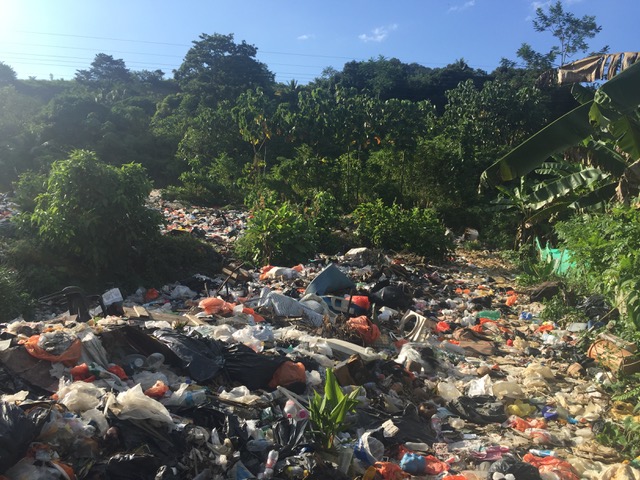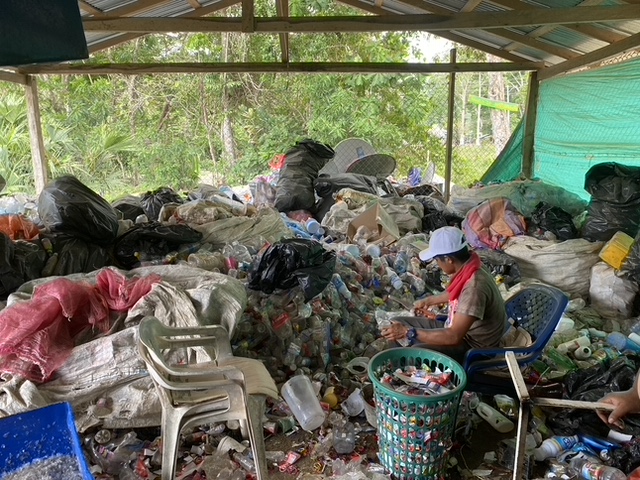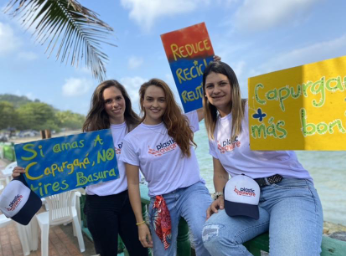March 2021 has been a busy month for us at Plasticaware. As such, we would like to share some of the key milestones, successes, but also drawbacks we’ve experienced over the past few weeks in Capurganá.
What started as a three-women project is now slowly but surely turning into a cross-country movement where many different stakeholders from Colombia and Switzerland have joined forces to create change. Of the many volunteers supporting us, the plastic heroes are perhaps one of the most important ones as they bridge the gap between our organization and the local communities advocating for a lasting behavioral change in their immediate surroundings. It, therefore, comes as no surprise that our first weeks in Capurganá focused heavily on recruiting local plastic heroes. Heroes come in many forms. In our case, we found them at the local high school in the form of 26 11th-graders (approx. 16 years old).
During an intense one-week training course, we taught the students about our mission, the effects plastic has on the environment, and how to recycle correctly. The focus was set on plastic pollution and promoting the idea of “plastic as a resource” rather than “plastic as waste”. At the end of week one, the students took a test and received a plastic hero certificate. We were particularly struck by the passion, enthusiasm, and commitment the plastic heroes demonstrated to support the fight against plastic pollution.
Week two focused on getting the word out. Together with our newly won plastic heroes, we launched the campaign “Yo ando, tu andas” which loosely translates to “I’m joining and so should you”. The campaign focused on raising interest, curiosity, and awareness as well as starting a dialog with members of the local community. For that, signs and posters were created and distributed all around town. The campaign was rounded off with a small get-together at the end of the week where the project was introduced to a broader audience and the topic of plastic pollution discussed further.
Capurganá experiences a spike in tourism around the Easter holidays each year. It was therefore only natural for us to concentrate our efforts on involving these individuals to achieve our next milestone: beach cleanups. Each morning, we waited for the tourists to arrive by boat. We greeted them with signs and posters making them aware of the diar plastic and waste crisis Capuraganá is facing while simultaneously encouraging them to participate in our afternoon beach cleanups. We experienced a really great turnout, were able to hold many fruitful conversations, exchange ideas, and spark a dialog for change between generations – all while making Capurgangá’s beaches a little cleaner.
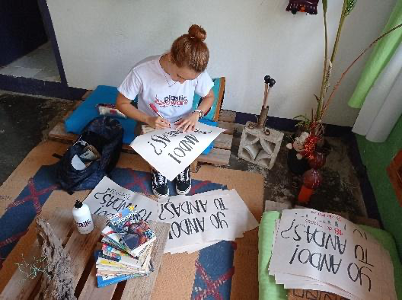
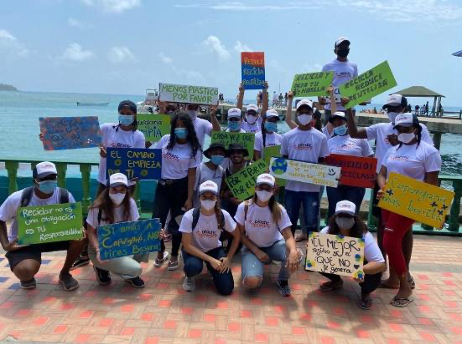
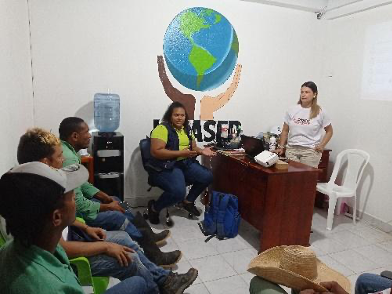
A well-functioning recycling station will have one of the biggest and most sustainable long-term impacts. That is why we are also working closely with the local recycling company Jacasep. The recycling station’s objective is to sort, clean, and pack recyclable waste so that it can be shipped out of Capurganá or upcycled locally. Since its introduction, the company has been overwhelmed with the organization of the different recyclables. As a result, waste has accumulated and has not been processed and recycled properly. To tackle this problem head on, we brought in an environmental engineer to train Jacasep’s workforce and also hired an additional employee for three months to help with the extra workload. In addition, we are collaborating with Jacasep’s president to create a new and more efficient system/work plan to run the recycling facility.
While a lot has been going well, some things have also turned out to be more complicated than expected. One such particular problem comes in the forms of landfills – huge open garbage dumps to which we, as an organization, do not have a solution at hand. Even though we are currently not actively working towards reducing or mitigating the garbage dumps. We are hopeful that our efforts will keep the open garbage dump at bay and will significantly decrease its growth over the coming years.
Our project focuses on “helping people help themselves”. That means, we provide the concepts, ideas, and resources. The success and outcome is then heavily dependent on the individual participants and local community. That is why it is paramount that we are able to convince the entire community to jump on board. We, therefore, spent a lot of time and energy into meeting as many different stakeholders as possible to discuss their role in this matter.
It is difficult to put into words how much joy it brings to work on the grounds every day and witness the direct impact Plasticaware has had in just the past four weeks alone. All of this is of course only possible because of your tremendous help and contribution. We are extremely grateful for the trust all of you have put into us and into our mission. For this, we would like to thank you very much.
Stay tuned for more news and information about our achievements in April. Until then, reduce, reuse, and recycle 😉
